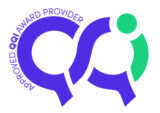Lean Six Sigma is the combination of the two most effective business improvement initiatives of the past two decades. Lean, pioneered by Toyota, seeks to minimise waste, and optimise the speed of a process. Six Sigma, pioneered by Motorola, seeks to ...
Read More
Lean Six Sigma is the combination of the two most effective business improvement initiatives of the past two decades. Lean, pioneered by Toyota, seeks to minimise waste, and optimise the speed of a process. Six Sigma, pioneered by Motorola, seeks to minimise defects, and maximise process capability. The marriage of Lean and Six Sigma has combined the best of both into a powerful weapon against waste and variation, enabling significant process improvements across all industries.
This three-day Yellow Belt programme uses a targeted and supported team-based approach to project-based problem solving. The recommended approach is to set-up several teams (with 3-4 members on each team), each team will apply the DMAIC methodology (Define, Measure, Analyse, Improve and Control) to a well-defined process improvement opportunity.
The programme structure is as follows:
- Day 1 focuses on the Define and Measure phases
- Following Day 1 the Teams will have an action plan to characterise and investigate the process opportunity
- Day 2 focuses on the Analyse, Improve and Control phases. Each Team will provide a detailed update on their project and progress on their assigned Project Work and will receive Tutor Feedback
- Following Day 2, the Teams will develop and implement an appropriate solution and verify its impact on the process performance
- Day 3 each team will meet the Tutor individually to review the Project objectives, deliverables, and documented improvements. The Tutor will mentor and advise the Teams before each team presents their project to the Tutor as part of their evaluation.
The course has little or no statistical content and will focus on identifying waste, using team tools, connecting knowledge-based tools, and identifying data collection requirements to improve process learning. The ideal spacing between Day 1 and 2 is three weeks with the same gap to the Day 3 mentoring Day.
Collapse



